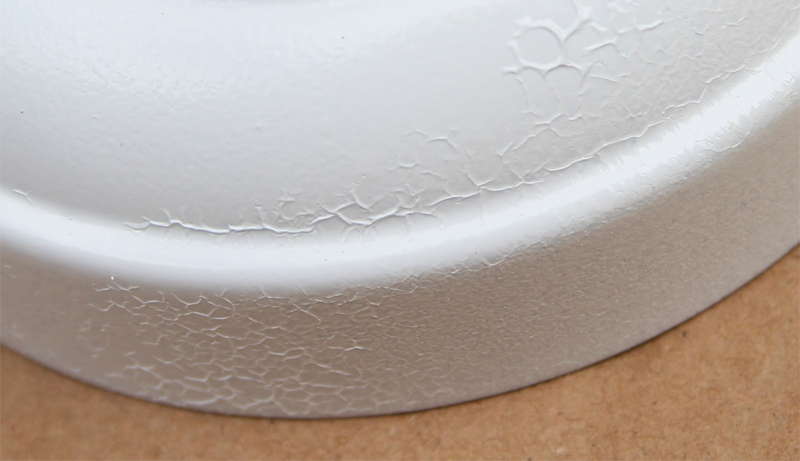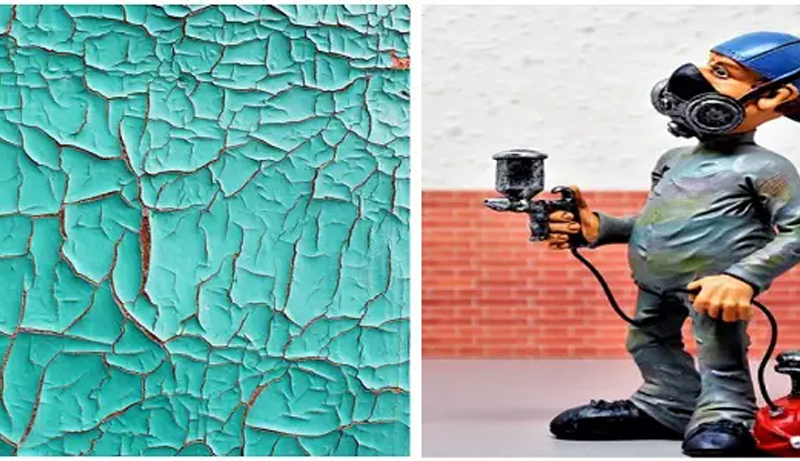You want your art to stand out and be recognized while using spray paint. The paint can be applied in a variety of ways to achieve the desired effect. However, occasionally you could notice that your spray paint has started to break in an unusual way. Why is this taking place? What can you do in this regard? Continue reading for some useful advice on how to fix cracked spray paint and prevent it from happening again.
What Leads to Spray Paint Cracking?
Numerous factors can result in cracks in your spray paint. You must first identify the issue if you want to stop your spray paint from breaking. Different remedies are needed for various forms of paint cracking. Temperature and humidity, or the surroundings in which you’re painting, are the most frequent reasons of cracking in spray paint.
Temperature: How your spray paint will fracture can be greatly influenced by its temperature. Your paint can be too soft if it’s too heated. It will be more likely to crack while drying if this is the case. The paint expanding inside the can leads to cracking during the drying process. The paint will expand excessively if it is too heated, which will put strain on the can. The paint within the can might crack as a result of this pressure.
Humidity: Humidity can have an impact on how quickly paint dries. Your paint may not dry quickly enough if the air is too humid. Additionally, the paint may break if it dries too slowly.
How Can I Prevent Cracking in Spray Paint?

If any of the aforementioned factors are causing your spray paint to crack, there are a few things you can do to stop it. You must cool down the paint if it is too warm and causing the cracking. You can accomplish this by putting the paint can in a bucket of freezing water. The paint should be at the appropriate temperature for use once it has cooled. You’ll need to dry your paint more rapidly if the humidity is causing it to crack. By putting your paint in a well-ventilated space, you can achieve this. Avoid placing your paint in direct sunlight as this can cause it to dry out too rapidly.
How Should I Handle Metal With Cracking Spray Paint?
You should switch paints if your spray paint is chipping on metal. Because metal is much harder than many forms of paint, your paint probably contains substances that won’t adhere to metal. You’ll need to locate a metal-specific spray paint to fix this issue. Your can’s coating drying out may potentially result in cracking. Open your can, thoroughly stir the paint inside, and then seal it to see if this is the case. If the cracking stops, your paint has most likely merely become dry. After a few days, if your cracking resumes, it’s likely that the paint isn’t adhering to the metal.
How Do I Fix Plastic That Has Cracked From Spray Paint?
Several distinct factors could be at play if your spray paint is splitting when applied on plastic. Your plastic is probably acrylic if it is glossy. Plastic and acrylic paint often have trouble sticking to one another. It’s possible that the paint was applied too thickly if it’s breaking as it dries. Your plastic may be the problem if you’re using the proper paint and not putting it too thickly. Your paint won’t effectively adhere to your plastic if it shines too brightly to be made of acrylic. To make your plastic a little bit rougher, you may try sanding it. Your paint will adhere better as a result of this.
Why is the second coat of spray paint cracking?

When you apply a second layer of spray paint, it can crack, which indicates that the paint isn’t completely dry. This may be brought on by how the paint is applied or by how long it takes for the paint to dry. You’ll need to wait longer before applying your second coat if the drying period is too short. Make sure the paint isn’t being applied too heavily as well. If so, you’ll need to slightly thin your paint.
Why Does Spray-Applied Paint Feel Rough?
It’s possible that you’re not spraying at the proper distance if your paint feels gritty after application. Ensure that you are spraying the paint at the appropriate distance. Paint will be harsh if you are too close. Your paint will be too thin if you are too far away. This might be happening if you’re painting on a large surface because of the quantity of coverage your paint can is providing. You will be able to feel the texture of the paint better if you are painting on a small surface. You may wish to use a smaller paint can if your surface is large. This will increase your coverage and make your paint feel smoother.

